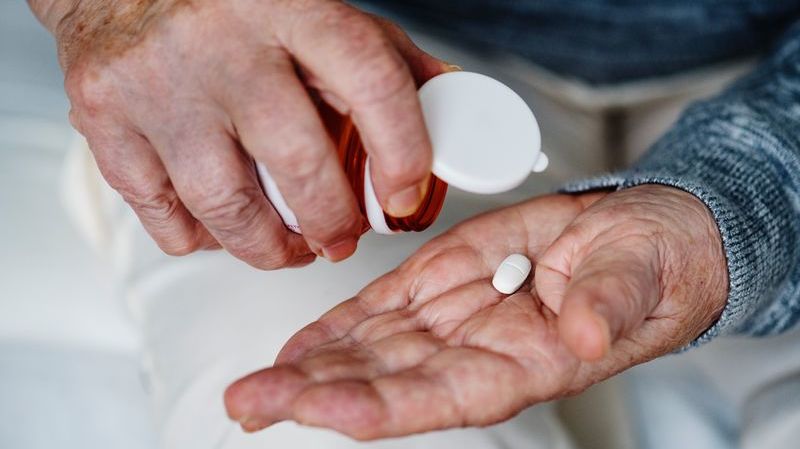
Taking prescribed blood pressure medicine (antihypertensive medication) is a relatively low-commitment way for people with hypertension to reduce health risks that can include cardiovascular damage, stroke and premature death. Yet around half of the people prescribed antihypertensive medication don’t have their high blood pressure controlled within recommended levels.
Part of the problem is that they aren’t taking medication as prescribed. With an estimated 100 million U.S. adults having high blood pressure—and the number rising—failure to take recommended medicine creates an avoidable public health issue.
The problem is more pronounced among people under age 65, according to recent research led by Gabriel Tajeu, assistant professor of Health Services Administration and Policy, and published in Hypertension. His group’s study of prescription refills by more than 370,000 commercially insured patients under 65 found that 23.5 percent of those who were supposed to be taking antihypertensive medication discontinued use of the drugs within the first 270 days. The refill data served as a proxy for determining whether people were using the prescribed medicine.
Of those who continued, 40.2 percent had low adherence, taking prescribed dosages less than 80 percent of the time. In all, for the year 2014, a total of 54.2 percent of the under-65 population examined engaged in suboptimal medication-taking, whether by not using medicine as much as prescribed or by simply quitting its use. Prior research using Medicare data to look at the use of anti-hypertensive medication by people 65 and older has shown better compliance, though adherence is still far from perfect.
Why are so many people not taking their blood pressure medication?
”Hypertension is largely an asymptomatic disease,” says Tajeu. “You don’t necessarily feel better when you take your antihypertensive medication. In some cases, you feel worse. For younger populations, there’s literature that suggests they don’t want to admit they have a chronic disease that they have to manage for the rest of their lives.”
For those diagnosed earlier, getting a jump on controlling high blood pressure is a serious health matter. Years of exposure to elevated blood pressure can have cumulative effects.
“Blood flow is a physical action. Your vessels are being slammed by waves of blood every time your heart pumps,” Tajeu says. “That’s why the younger population is important. Somebody may have blood pressure that is a bit high, but they have been exposed to it for 10, 20 years, causing a lot of damage to their vascular system.”
Though the findings of widespread noncompliance with doctors’ orders are discouraging, the study indicated possible avenues for improvement, Tajeu says. The type of drug prescribed made a difference. Of patients examined in the study, those prescribed angiotensin-converting enzyme (ACE) inhibitors or angiotensin receptor blockers (ARBs) were less likely to discontinue medications. That’s likely because those have fewer side effects than diuretics, the typical first-line therapy. However, these drugs also are more expensive. Patients with hypertension prescribed a multiclass regimen (more than one drug) also were less likely to have non-adherence, possibly because dosages of each drug are lower, resulting in lowered side effects.
“This paper may add to the weight of using those more expensive drugs as first-line therapy, but we can’t make any clinical recommendations,” Tajeu says.
The study also found that 90-day prescriptions and mail-order prescriptions improved non-adherence numbers. “The thought there is that you make it easier to obtain the medications and lower the burden on patients to need to get to the pharmacy,” Tajeu says.
